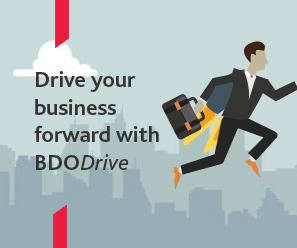Not all businesses must grow into giants - there can be big rewards for staying small..
Size does matter – and small, or smaller, can be way better than big.
So says Adam Davy, Head of Advisory for accounting and business advisory firm BDO, when assessing a key element of New Zealand's business landscape – how to scale up a, for example, $1m company into a $100m company.
Answer: Scaling up isn't always the answer.
Davy says the drive by many small-to-medium enterprise (SME) owners to grow "big" is often misplaced. SMEs are fundamental powerhouses of the New Zealand economy: 97 per cent of all businesses have 20 employees or less, they provide jobs for roughly a third of all Kiwis and produce about 29 per cent of our GDP.
But he says the myth of the entrepreneur is still alive – when an entrepreneur working out of a garage has a great idea, drives it forward with passion and then grows his or her company into a multi-billion-dollar behemoth.
"It does happen," he says, "but what happens far more often is that the small companies grow but fall into what we call 'the abyss' – the time when profit is affected by the costs of growing bigger."
That is the point at which many entrepreneurial businesses either fail or stagnate and Davy puts it down to, in the main, two simple factors: the owner not knowing what he or she really wants from the business and blind faith in the "bigger is better" mantra.
"Growth for the sake of growth often doesn't work," he says. "Companies grow their profit and then begin to scale up their operation. But profits fall as the costs of doing so bite – that's what we call the abyss.
"They have scaled up but their staff also might be causing a problem; they simply don't have the passion for the product or the business the owner does.
"So it is a question of what the owners want from their business and what they want to do when it comes time to exit. That's a question we often ask – what do you want out of the business and is what you are doing with the business the right thing to achieve that objective?
"You'd be amazed how many times it turns out the owners want one thing but are actually working towards another."

As far as an exit strategy is concerned, Davy says: "If you are in the business to enjoy the money and the dividends and to buy yourself a Porsche, well, guess what? The likelihood is that no one will want to buy you.
"But if you plough money back into the business, and steer it towards a situation where it can operate without you, that scenario will attract buyers."
Take the example of a small retail business starting with one shop in a New Zealand town. It grows to three shops, then nine. The proprietor is still spreading himself around the business, making sure it runs the way he wants it.
But then he grows to 15 stores, then 30. "Now he is realizing that having 30 stores doesn't mean 30 times the profit. He has to have infrastructure in place which does not rely on him because he can't spread himself around all 30," says Davy. "He needs a CEO, he needs a robust accounting system because what was once a $1m a month business is now $20m a month."
He recalls the example of a client who established a cabinetry business but was becoming stressed to the point of breakdown by the pressures of working in, as well as on, the business.
When Davy sat down with him and his wife, it emerged they really wanted to shift from the North Island to the South Island – but felt tied to the business, a never-ending and depressing spiral of responsibility and hard work.
Davy solved matters by helping them to run their business remotely – after bringing in another person who took 10 per cent of the business and ran it from the North Island premises. The founders continued to oversee the company but without so much of the attendant stress.
It flourished, but without becoming huge – exactly what the founders wanted. That included a lifestyle choice that saw them travel, for the first time in their lives, on overseas holidays. Even as he approached the end of his working life, the founder took a smaller role in the company as a hobby and then had the pleasure of seeing one of his children come into the business.
"If we hadn't done that, he would probably have been divorced or dead or possibly both," says Davy.
What Davy was doing intuitively 20 years ago is now greatly assisted by the BDODriveprocesses, a suite of tools and insights which give a framework to assess alignment and allow focus on the critical elements of achieving these business, personal and financial aims of the owners.
"So we can work with the $1m companies or the $100m companies. That journey, from $1m-$100m, is hard but it can be done and the joy of it for me and other BDO partners and advisers is in scenarios like this where we figure out what the people in the business actually want – and help them to get there."